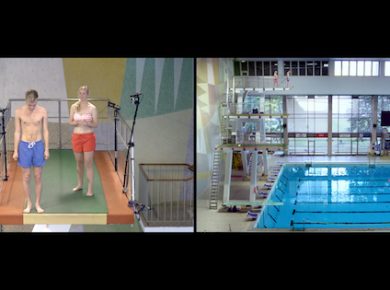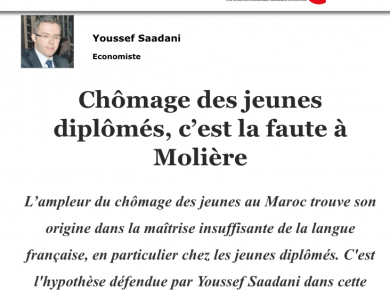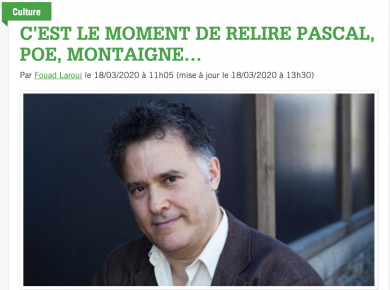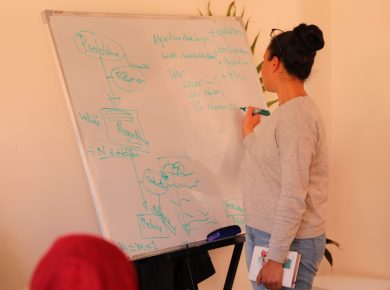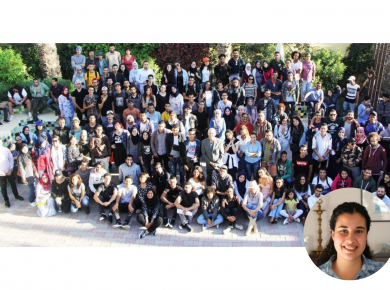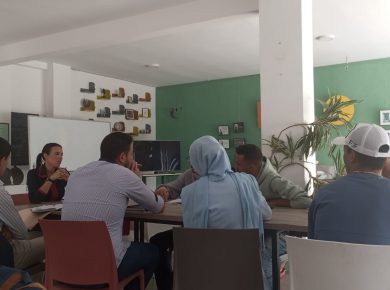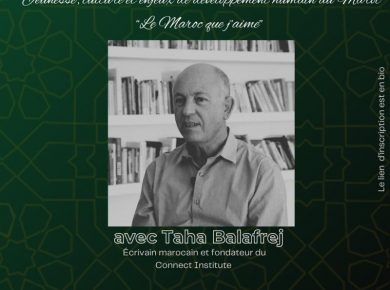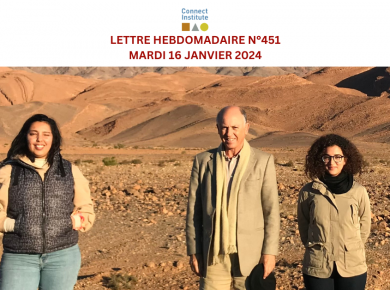« 120 millions de litres consommés en moyenne par an et plus d’un milliard de DH au titre de l’impôt.Des chiffres qui illustrent le dynamisme du secteur des boissons alcoolisées.La production, l’import et la consommation de ces produits, se sont inscrits en hausse soutenue sur la dernière décennie. »Qu’en pensez-vous ?A- Bonne nouvelle, c’est excellent pour l’économie.B- Il est temps que le gouvernement agisse pour arrêter cela !
Check in: This exercise helps to assess the general state of mind of the participants at the beginning of the session.
Actualité: Participants shared the news that caught their attention during the previous week. Following are some examples:
- Morocco second, a Moroccan humorous video, made it to 9GAG and Vanity fair.
- A friend on Facebook justified the raping of a girl saying she shouldn’t have gotten raped if she were not a model.
- Demonstrations in Romania continue for 10 days.
- The increasing numbers of unemployment in Morocco.
- Canceling Agadir Land project.
- A participant submitted his application for the One Beat program.
Newsletter: The participants talked about the articles they mostly liked from the newsletter:
- The intro.
- Mahi Binebine’s FEED.
- The flash.
- Decodex.
- Semaine a Connect Institute.
Compte rendu:
Jamal Kamali: Talked about contacting an association for a book donation, and why it is important to have a library that young people can have access to.
Badreddine Bouzouide: Presented a report of all the activities he was part of during the week: DARDACHA, Creative Writing, [p+100+20].
Kadija Amahal: First talked about the DARDACHA session then about the Creative writing with Rosalia.
The three participants got feedback from their friends concerning their body language, hand gestures, and how to improve the content of their presentations.
Debate:
The topic of this week’s debate is the alcohol production and consumption in Morocco. The participants split into two groups:
- This is good for the country’s economic growth.
- The government should stop this.
Both teams had 30 minutes to come up with arguments defending their position. Then, they debated with each other. Following are the arguments given for each position:
For A:
- Morocco gets 1 billion dirhams of taxes for alcohol production and sales.
- Morocco has the second-best wine in Africa and the first in the Arab world. Therefore, we need to be proud of it.
- The US ban for alcohol empowered the Mafia.
- The alcohol production offers many job opportunities in Morocco.
- We should stop this hypocrisy and educate people on drinking responsibly.
For B:
- Morocco is a Muslim country and drinking is Haram
- Alcohol produces other social problems such as divorce and violence.
- Some Moroccan Alcohol producers don’t pay taxes.
- Drinking can cause deadly diseases.
This exercise helped the participants learn how to confront an opposite idea with arguments and see the things from another person’s point of view.
STL:
Time management exercise in which the participants get to count the number of hours spent sleeping, working or doing their leisure activities.
Classical Music: This week, the participants listened to Joyce DiDonato & David Zobel – Rossini – Otello – ‘Assisa al piè d’un salice. It is a composition made by Rossini for a play written two centuries before by Shakspeare entitled Othello. The play tells a story of a Moorish captain. This character was inspired by Abdelouahed Ben Messaoud, The Moroccan ambassador in the court of Queen Elizabeth The First. His job was to establish and Anglo-Moroccan alliance against Spain.
This artistic collaboration proves that art and culture go far beyond differences and borders.
La phrase: The participants wrote down a sentence that had impacted them during the session.
Check Out: The participants wrote and shared words that described their actual emotions immediately before the end of the session.

